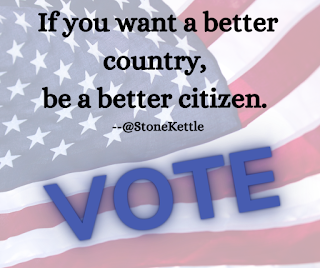As an independent author with a full time job and mother of two under four, efficiency is imperative. Things have changed so much since I first self-published back in 2003! Back then, it was vanity presses. And then again in 2010, we mostly just had Microsoft Word and InDesign to make files for Smashwords and CreateSpace. I’m so excited by the opportunities we have today, and want to share some of my key tools.
Bright Bird Press stationery
https://brightbirdpress.com
The note pads, journals, and notebooks from Bright Bird Press are made specifically by a writer for writers. Everything is undated, so it doesn’t matter when you begin or when you have to stop, you can just open another page and keep going. I use the writing sprint sticky notes to help me keep track of my stats no matter which journal I picked up. There are tear off daily notepad sheets helping you focus on your writing goals for the day. There’s a popular year-long planner that allows you to track two fiction projects, break your goals down into monthly and weekly tasks, and provides quarterly self-care reminders specific to writers. I love this stationery set and just know you will too.
Notion.so
https://notion.so
I’ve been a pantser my entire life, but when I realized I wanted to make a series out of one of my books, I realized I needed a place to do some reverse engineering. Notion.so is a document repository with some light relational database features. There are kanban, calendar, gantt, meeting notes, etc. It’s a free service, so if you’re looking for a way to organize the business of writing, I’ve loved Notion.so.
I use Notion.so as my story wiki to hold all the metadata about my stories. Marketing blurbs, back cover copy, elevator pitches, character profiles, plot summary and story beats all live on template pages I created in my Notion. I have a promotions calendar, table to calculate estimated royalties from paid ads, etc.
ProWritingAid
https://prowritingaid.com
Making sure I have a clean file is so important when it comes to saving editing fees. People seem to fall under two camps: Grammarly and ProWritingAid. I like the latter, because it has extensions for your browser and Microsoft Word. It allows you to create your own dictionary and you can pick your grammar style, whether it’s academic or creative. I love knowing that when I hand off my draft to my editor, I will have caught most of the obvious problems, saving my editor’s time to worry about the content instead. I went all-in and bought the premium lifetime license using a deal from AppSumo.
Atticus.io
https://atticus.io
This tool changed my life. Promised to always be a one-time fee, this tool has a writing mode and formatting mode. When in writing mode, you can write in the browser or via the downloadable app. You can create reusable pages, so if you have a standard author bio, newsletter sign up, back cover blurbs, etc, you can create once and use them across all your books. Updating is super simple as well. Just update what you need, then push the changes to all your books. This was a huge time-saver! And in formatting mode, you can use their existing templates or create one from scratch. I’m planning to have a template for each series of books.
Otherwise, if you’re looking for a more traditional alternative for formatting your books, I like Affinity Publisher. It’s a one-time purchase that’s a great alternative to InDesign, if you’ve used that tool in the past. You won’t get the benefit of reusable pages, but at least you’ll save money.
Canva
https://canva.com
I’ve been a Canva user since 2014, but only recently became a pro user to take advantage of their scheduling tools. I use Canva to make my book covers, character profiles, newsletter and marketing graphics, and also schedule content for my Facebook, Pinterest, Instagram and Tiktok accounts. Their template library has exploded, making it really easy to schedule content weeks in advance, freeing up your time to get back to writing. You can make reels, stories, and regular posts… I’ve also made book plates, stickers, posters, and t-shirt designs, too. It’s a great, easy-to-use tool that has made my graphics generation process so much easier.
So that’s my core writing toolkit! Journals and stationery from Bright Bird Press. Business and series planning with Notion. Pre-editing via ProWritingAid. Writing and formatting via Atticus. Graphics via Canva. It took a lot of trial and error for me to get to this core set, so I hope I’ve saved you some time in the process. Let me know what you think of these tools! You can find me on Instagram as @worderella.
 Belinda Kroll writes sweet and cozy Victorian fantasy. You can find her on Instagram as @worderella or via her website at https://worderella.com. She was the 2017 winner of the Self-Publishing Review award for her Civil War fiction novel, THE LAST APRIL.
Belinda Kroll writes sweet and cozy Victorian fantasy. You can find her on Instagram as @worderella or via her website at https://worderella.com. She was the 2017 winner of the Self-Publishing Review award for her Civil War fiction novel, THE LAST APRIL.










